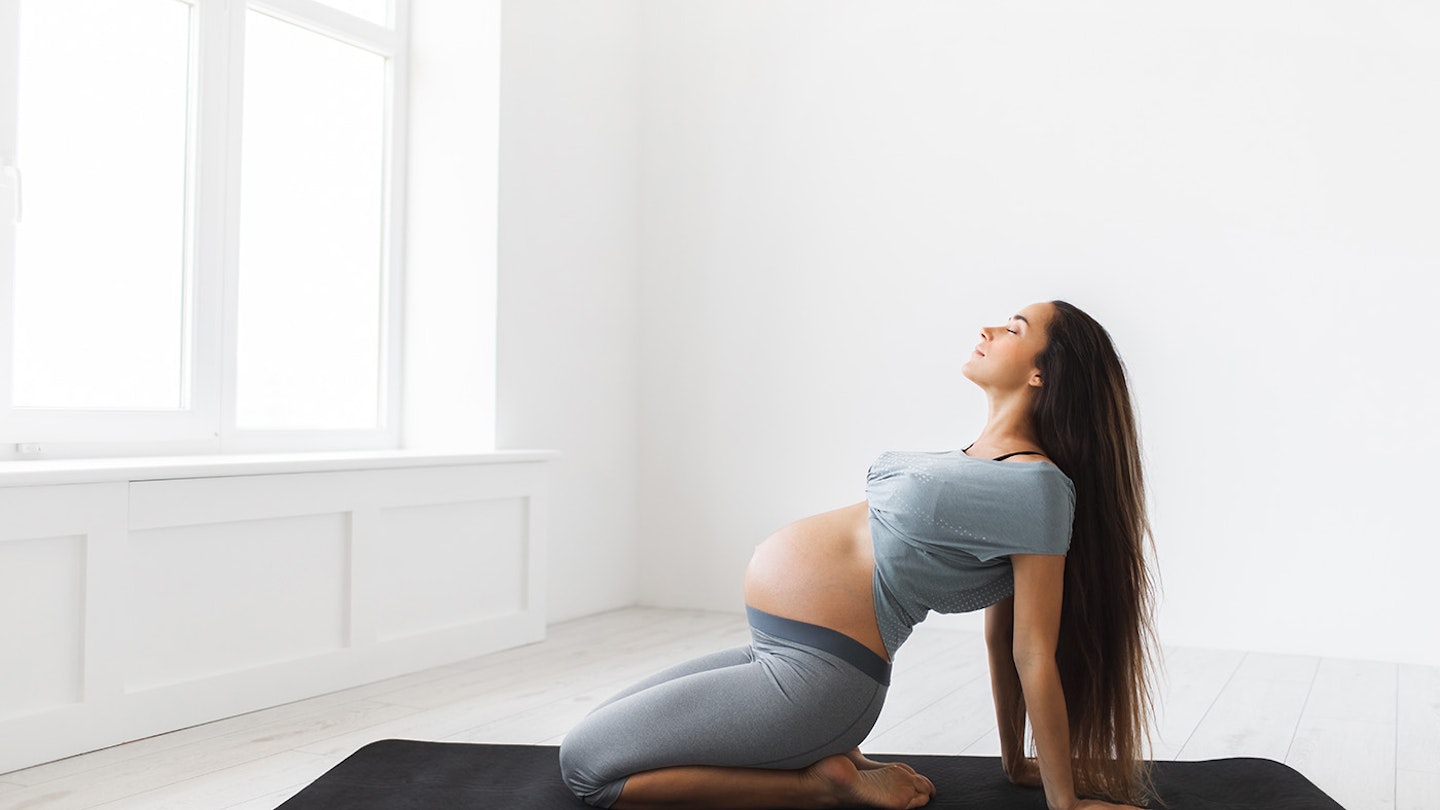The right exercise during pregnancy is important and there’s a reason why yoga is one of the best pregnancy classes. It's not just about sitting around cross-legged while plinky plonky music drives you to distraction, it's actually really good for both you and your baby during pregnancy and helps your body recover once your little one has arrived.
“The main purpose of yoga, no matter which style you choose, is to calm the mayhem of the mind,” says Chatty Dobson, Yoga Teacher & Owner of FLEX Chelsea. “It teaches us patience, endurance, how to find peace in discomfort, and most famously – flexibility, strength and muscle toning.”
Is yoga safe during pregnancy?
Yes! With the right instruction, this age-old form of exercise is completely safe to do while pregnant. Yoga has a multitude of health benefits, including toning your muscles, improving your balance and circulation, and keeping you limber.
Plus, you can do it from the comfort of your own home with the help of a DVD or a free online tutorial.
Benefits of pregnancy yoga
Yoga can really help to control your breathing, something that’s key during pregnancy and when you’re in labour. "I swear by yogic breathing to help relieve pain in labour, I think it’s better than gas and air," says pre and postnatal fitness expert Jane Wake.
"Certain squats and stretches can also help to strengthen and realign the body," continues Jane. "This will make both you and your baby feel more comfortable. It can also help to relieve back pain in pregnancy."
Just like in a standard yoga class, you’ll learn how to control your breathing which, in turn, will help you to relax and clear your mind. Yoga can also be a brilliant way to counteract new mum exhaustion.
"The calming influence of a class is really beneficial – especially if you’re anxious," explains Jane. "It’s also important for you to get a bit of 'me' time."
Other benefits of pregnancy yoga include:
• Easing muscle tension
• Tones muscles and improves circulation

How to get started
It’s advisable to attend a pregnancy-specific yoga class, where the instructor can adapt the movements to match your stage of pregnancy.
"There are certain rules that every instructor has to be guided by such as not lying on your back after the first trimester but being aware of the effects of hormones that make joints lax," says Jane.
You should also expect some Pilates elements in your class. "This will help your core control, which is important," says Jane. "It will strengthen your pelvic floor area and also the deep abdominals/back and shoulder muscles.’ This is all great prep for having a baby as carrying your baby will put extra pressure on your back and shoulders."
Check with your doctor before starting yoga once you’ve given birth. But, if there have been no complications, it’s usually OK to get back on your yoga mat once you’ve had your six-week postnatal check. If you’ve had a C-section, the general rule is to wait 10 weeks.
"There are things you can do straight away such as pelvic floor exercises," says Jane. "It’s best to be guided by a professional as everyone is different but essentially you should start with the exercise you did prenatally and build from there."
Why not give this pregnancy yoga video a go by the NHS?
When can I start doing yoga during pregnancy?
If you're a new yogi, the best time to start is during your second trimester. While there's no evidence to show that yoga during the first trimester can harm your baby, this is usually when miscarriages are most likely to occur, so it's better to be on the safe side. Also, during your second trimester, you'll hopefully start feeling less tired and sick, so you'll be able to cope with a class better.
Take your baby to yoga
If you've given birth and can’t bear to be separated from your beautiful baby just yet, you can even do a spot of baby yoga – a la Giselle Bündchen. Simply find a yoga class that lets you take them along with you. Yoga with your baby can be a great bonding experience and calming for you both.
"I have women back in my classes with babies who are just a couple of weeks old, but that’s because we are highly trained to know what to do," says Jane. "Some places won’t allow babies in until they’ve had their six-week baby check."
